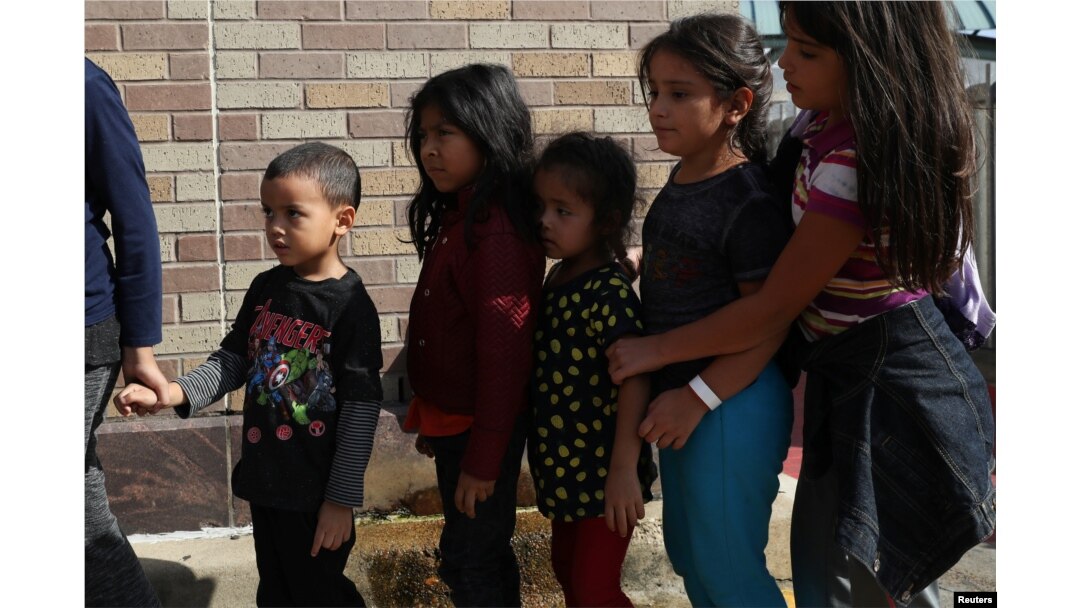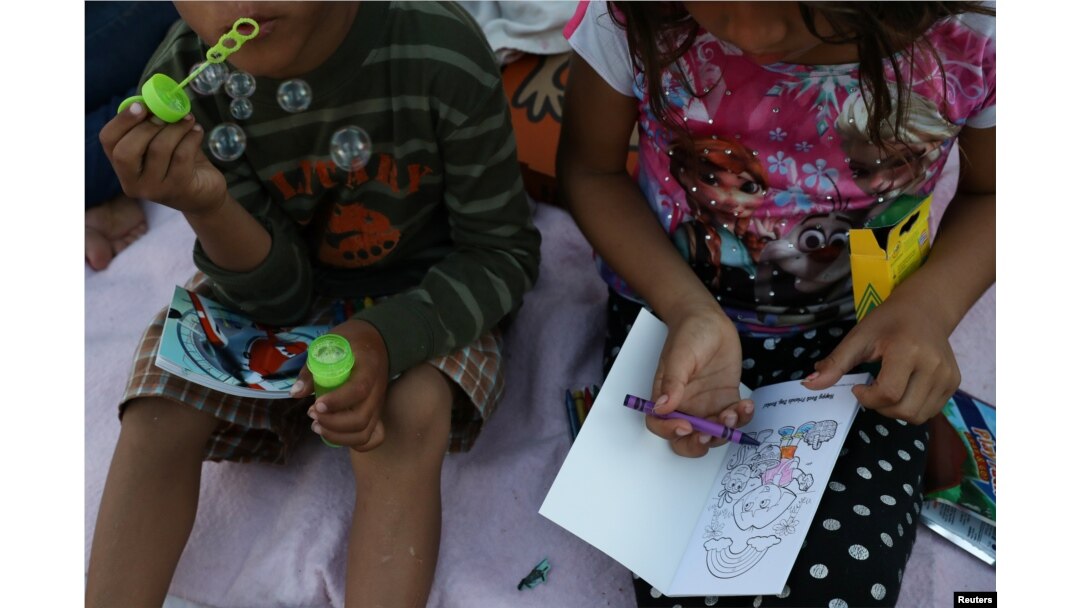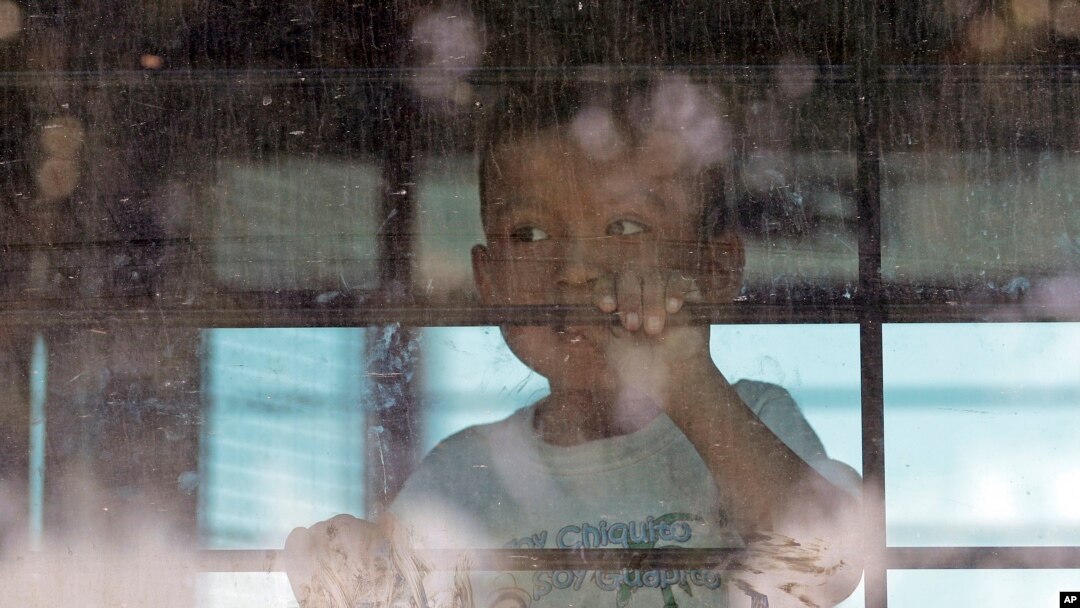Editor's note: We wanted a way to keep you updated with the top immigration, migration, and refugee stories every week — the ones that will most affect you, our international readers, viewers and listeners. We want you to know what's happening, why, and how it could impact your life, family or business, so we created a weekly digest of the top original immigration reporting from across VOA. Questions? Tips? Comments? Email the VOA immigration team: ImmigrationUnit@voanews.com
Mother and child reunion?
A California judge gave the Trump administration 30 days to reunite parents and children separated at the U.S.-Mexico border, 14 days for children younger than 5. No word yet from the Department of Homeland Security about how it will accomplish this, but using DNA to is not a viable option, according to immigrant advocates.

Children form a line as undocumented immigrant families are released from detention at a bus depot in McAllen, Texas, June 22, 2018.
When the reunifications do take place, it will take a long time for the children to heal … if they ever do.

Honduran brother and sister wait on the Mexican side of the Brownsville & Matamoros International Bridge after their asylum seeking family was denied entry by U.S. Customs and Border Protection officers near Brownsville, Texas, June 26, 2018.
The border by the numbers
Syracuse University's Transactional Records Access Clearinghouse (TRAC) used case-by-case Freedom of Information Act requests to find out just what was going on at the border between October 2014 and April 2018, when the Trump administration's "zero-tolerance" policy was announced. In spite of it, the numbers show arrests are down. But deportations are happening sooner.
Migrants eat menudo, a traditional Mexican soup for lunch at the Mana Pastoral Center, a shelter for adult men in Mexicali, Mexico. (Photo: R. Taylor / VOA)
The lack of U.S. hospitality is why some migrants are opting to stay in Mexico despite a lack of security.
Protesters hold up signs and call out against the Supreme Court ruling upholding President Donald Trump's travel ban outside the the Supreme Court in Washington, June 26, 2018.
Ban does cut entries
"I feel like a second-class citizen," a Syrian refugee told reporters after the Supreme Court upheld President Donald Trump's travel ban. The court's action changes nothing in terms of the policy, which has been in effect since last year, but it does close the door on those who had hoped it might be changed.
The libertarian CATO Institute reports that travel from the ban's seven targeted countries is down 86 percent and immigration is off by 93 percent in the first five months of 2018.
Your browser doesn’t support HTML5
US House Fails Again to Pass Immigration Legislation
Congress punts again
How many times have both Trump and immigration advocates called on Congress to do something about immigration? It still hasn't. In fact, after failing to pass a "compromise" bill this week, lawmakers are off for a long holiday.
Your browser doesn’t support HTML5
Trump Pushes Immigration as Midterm Issue Despite Controversy
Trump claims triumph
The president thinks he wins on immigration. While protesters planned to gather for mass demonstrations on Saturday, Trump has been taking his immigration message to the people with an eye on fall elections.
Demonstrators protest President Donald Trump's executive immigration ban at O'Hare International Airport in Chicago on Jan. 29, 2017.
Refugees
Christian refugees are making up a greater percentage of those accepted by the U.S. for resettlement than they have in 16 years. They primarily come from Africa and, notably, not the Middle East. The proportion of Christians may be higher, but nobody's cheering. The U.S. is on track to accept fewer than 22,500 refugees this fiscal year, a historic low.


